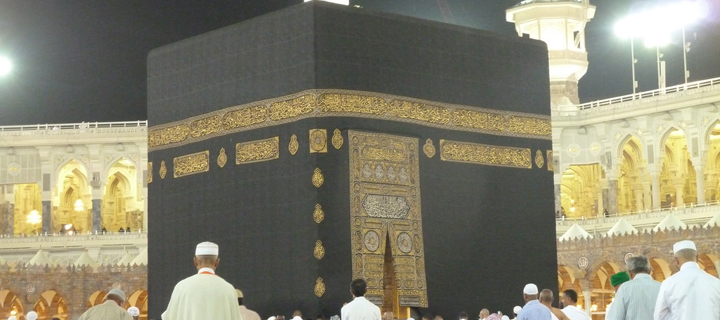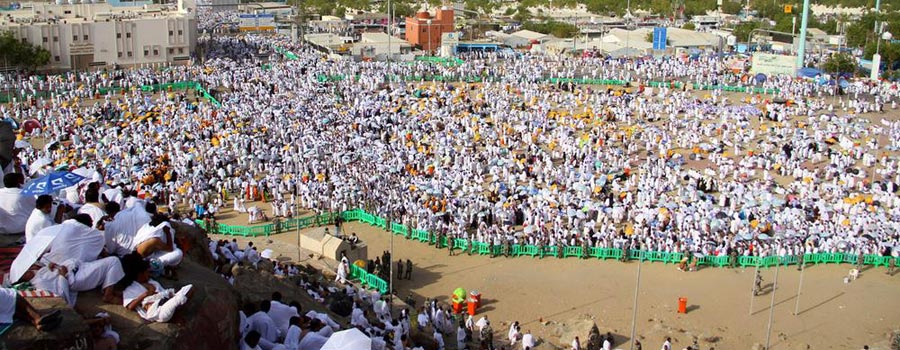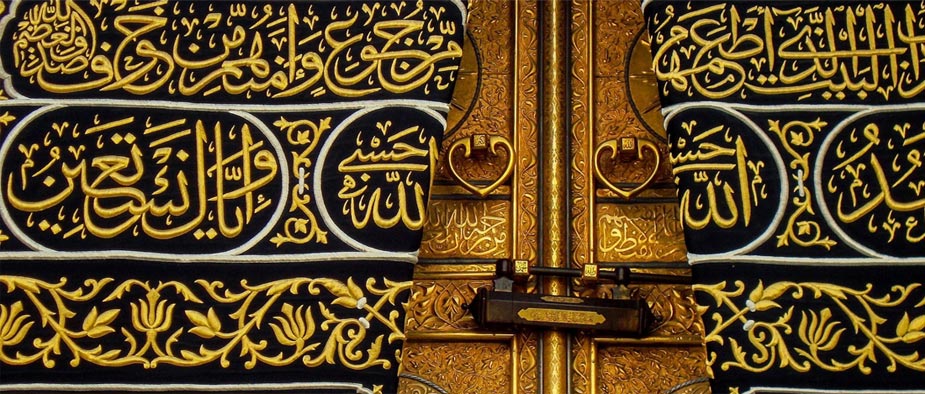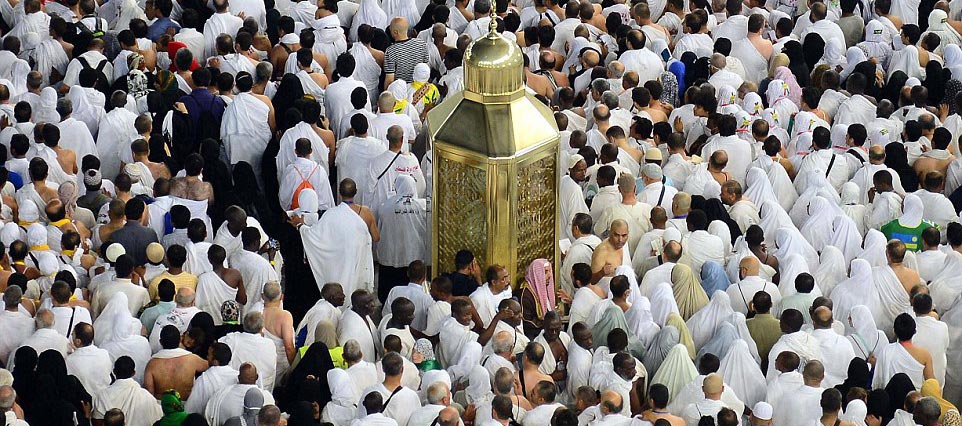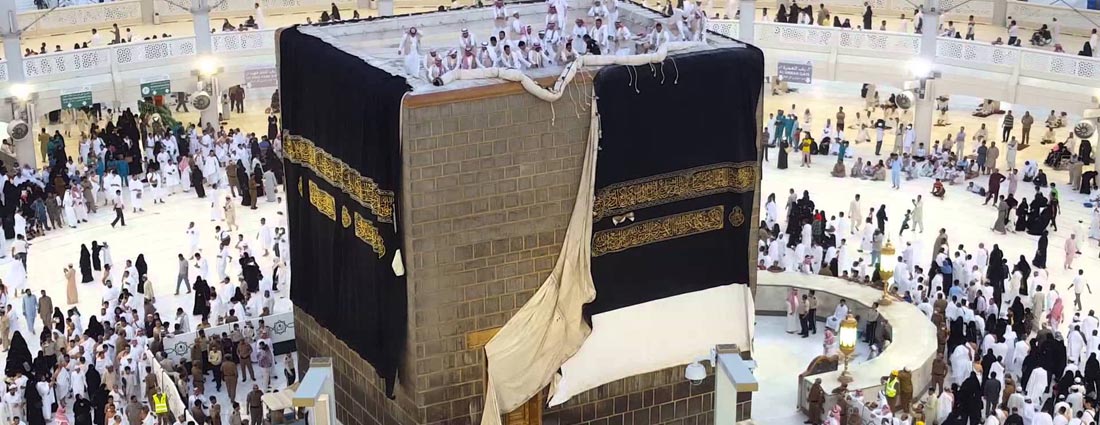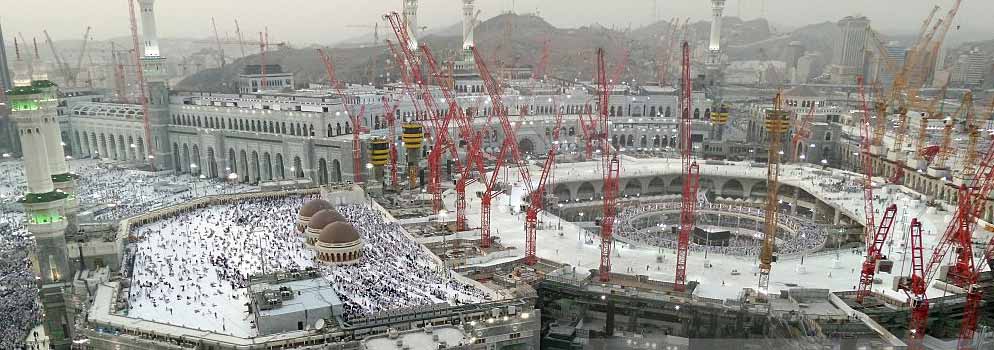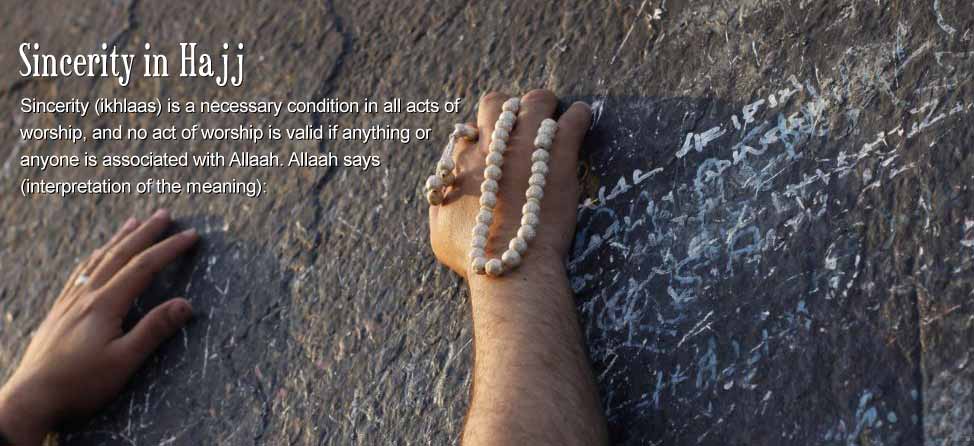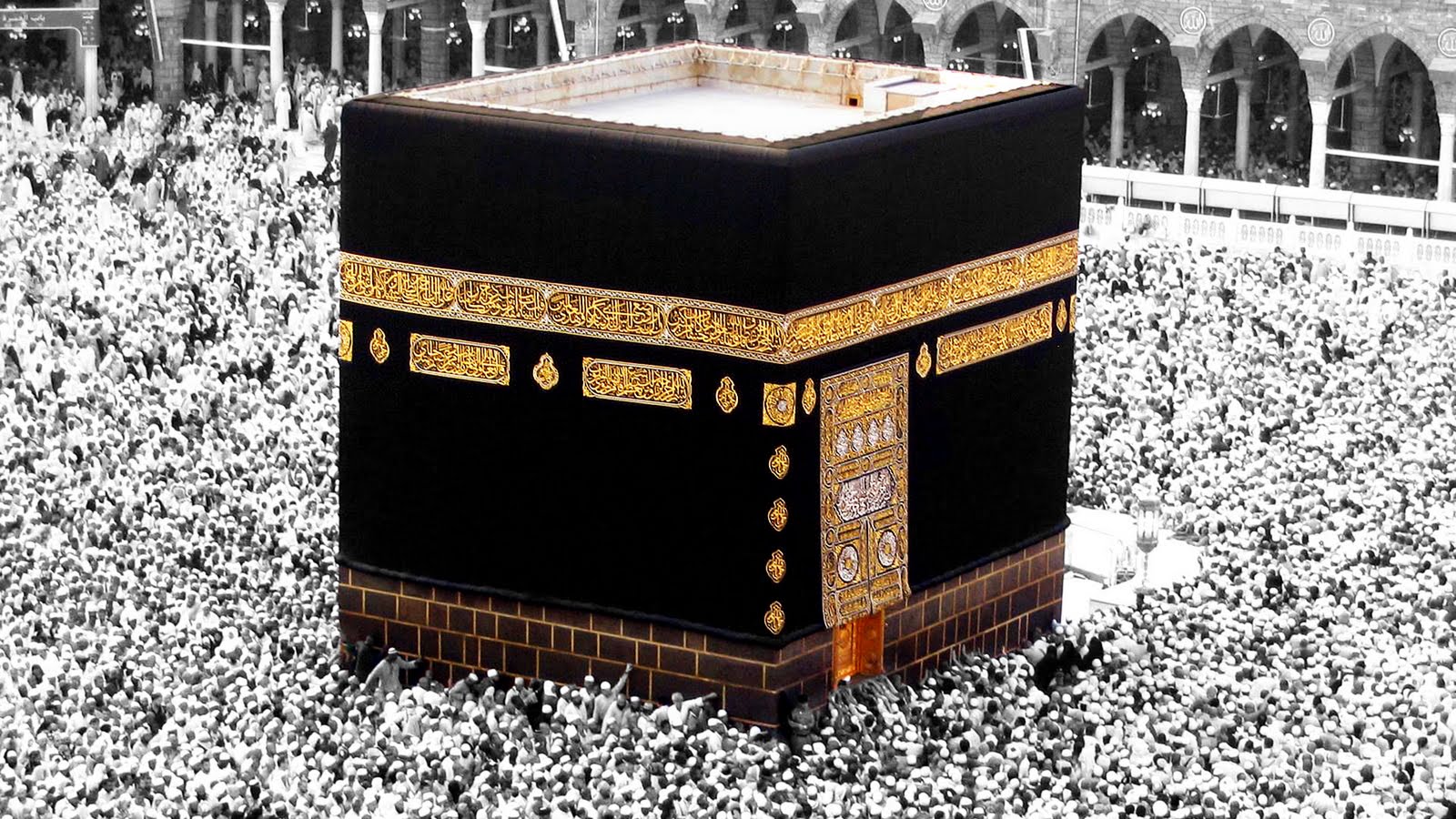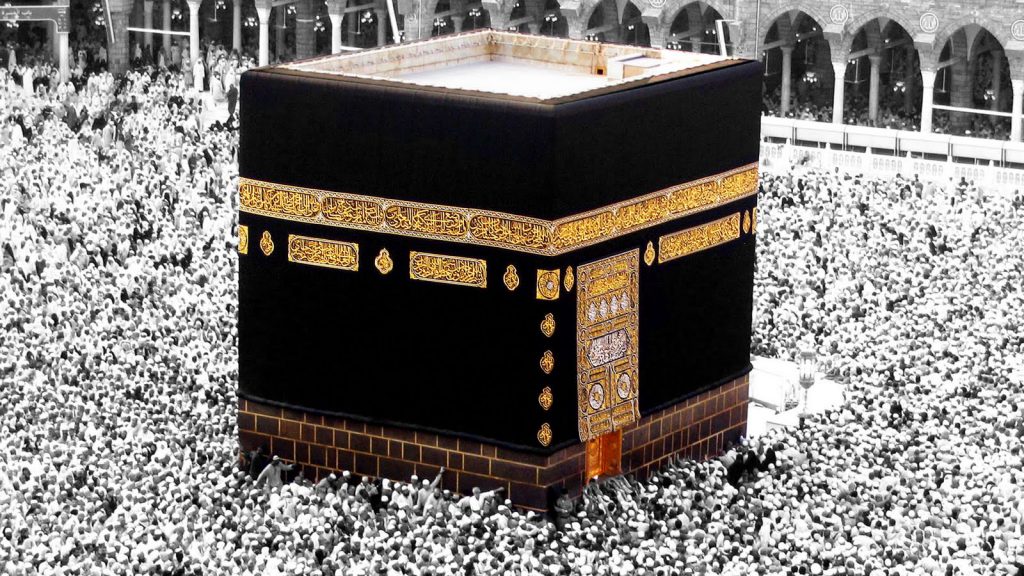Thus, the meaning of the verse (which means): {“And complete the Hajj or ‘Umrah for Allah…”} [Quran 2:196] is to carry out the due rituals of Hajj and ‘Umrah properly and offer them with full sincerity to Allah The Exalted after starting them.
Allah The Almighty Says (what means): {“And complete the Hajj or ‘Umrah for Allah…” } [Quran 2:196]
Scholars of Tafseer (exegesis) mentioned that this verse was revealed in Al-Hudaybiyah in the sixth year A.H. The polytheists of the Quraysh prevented the Muslims from entering Al-Masijid Al-Haraam to perform ‘Umrah (lesser pilgrimage). In fact, this incident was before Hajj was rendered obligatory for Muslims. Hence, what is meant in the verse is ‘Umrah while Hajj was mentioned in the verse to give Muslims the glad tidings that they would perform Hajj later; and this is one of the miracles of the Noble Quran.
Scholars of Tafseer elaborated on that verse, and here we shall highlight their opinions briefly:
They agreed unanimously that once the Muslim starts his Hajj or ‘Umrah, he is obliged to complete it. Meanwhile, their opinions vary on the intended meaning of completing Hajj or ‘Umrah. There are four different opinions regarding this issue:
1- Ibn ‘Abbaas, may Allah be pleased with him, said that it [completing Hajj or ‘Umrah] means finishing the due rituals of Hajj or ‘Umrah after starting them.
2- Other scholars argued that the intended meaning of the verse is that the Muslim should enter the state of Ihraam before he leaves his home intending Hajj or ‘Umrah only without being engaged in any other worldly affairs aside. ‘Ali along with other Companions, may Allah be pleased with them, adopted that opinion. Furthermore, Sa‘eed ibn Jubayr and other Taabi‘oon (successors) may Allaah have mercy upon them adopted the same opinion as well.
3- Mak-hool may Allaah have mercy upon him believes that the intended meaning is the necessity of assuming Ihraam for the Hajj or the ‘Umrah from the due Meeqaat.
4- Some argue that the meaning here is to perform Hajj or ‘Umrah separately. ‘Umar, may Allah be pleased with him, elaborated on that verse saying, “Completing Hajj and ‘Umrah means to perform them one at a time and to perform ‘Umrah on months other than the months of Hajj.” [‘Abdul-Razzaaq]
Furthermore, Imam At-Tabari may Allaah have mercy upon him mentioned in his Tafseer that the correct among these opinions is the first opinion, which states that completing Hajj or ‘Umrah means finishing the due rituals of Hajj or ‘Umrah after starting them and performing them duly.
Additionally, scholars hold different opinions regarding whether ‘Umrah is an obligatory or a Sunnah act of worship. The Hanafi and Maaliki scholars consider it to be a voluntary act. This was the same opinion that was held by Jaabir ibn ‘Abdullah and Ibn Mas‘ood, may Allah be pleased with them, among the Companions and An-Nakha‘i may Allaah have mercy upon him from the Taabi‘oon (successors). Those who adopted this opinion did not find in this verse any evidence that ‘Umrah or Hajj is obligatory. In fact, they found that this particular verse proves only that Muslims should complete Hajj or ‘Umrah i.e. finishing the due rituals of Hajj or ‘Umrah after starting them. They argued that the evidence on the obligation of Hajj is not stated in that verse, but in other verses such as the one (which means): {“… And [it is due] to Allah from the people is a pilgrimage to the House…”} [Quran 3:97]
Maalik may Allaah have mercy upon him said, “The ‘Umrah is an act of Sunnah but we do not know of anyone who rendered it permissible for Muslims to neglect to perform it.”
Whereas, Imaam Ash-Shaafi‘i and Imaam Ibn Hanbal may Allaah have mercy upon them believed that ‘Umrah is obligatory just like Hajj. ‘Umar, Ibn ‘Umar and other Companions, may Allah be pleased with them, adopted that opinion in addition to ‘Ataa, Mujaahid and Al-Hasan may Allaah have mercy upon them from among the Taabi‘oon.
Allah The Exalted Says (what means):
· {“And I Did not Create the jinn and mankind except to worship Me.” } [Quran 51:56]
· {“And they were not commanded except to worship Allah, [being] sincere to Him in religion…” }[Quran 98:5]
Thus, the meaning of the verse (which means): {“And complete the Hajj or ‘Umrah for Allah…”} [Quran 2:196] is to carry out the due rituals of Hajj and ‘Umrah properly and offer them with full sincerity to Allah The Exalted after starting them. It is worth mentioning that the previously mentioned verse underlines two significant issues:
· First, it highlights the importance of completing the acts of worship after starting them; as Allah The Exalted Says (what means): {“… do not invalidate your deeds”} [Quran47:33]
Furthermore, ‘Aa’ishah, may Allah be pleased with her, said, “The best righteous deed for the Prophet Sallallahu `Alayhi Wa Sallam ( may Allaah exalt his mention ) was that which was done frequently and on regular basis.” [Muslim]
· Second, which is the most important one, offering acts of worship with full sincerity to Allah The Almighty. Actually, devoting one’s intention of worship solely and sincerely to Allah The Almighty is one of the pillars of the validity of any act of worship and a reason for having our acts of worship accepted. It was narrated in a reported citation that ‘Umar, may Allah be pleased with him, used to recite that supplication, “O Allah, make all my deeds righteous and offered with full sincerity to You with nothing thereof devoted to anyone but You.”
5 Star Hajj Packages & 5 star Umrah Packages: For over a period of 15 years, British Hajj Travel is consistently offering top quality Hajj and Umrah tour packages.
Umrah Packages | Hajj Packages | Ramadan Umrah Packages | December Umrah Packages
Source: islamweb.net
